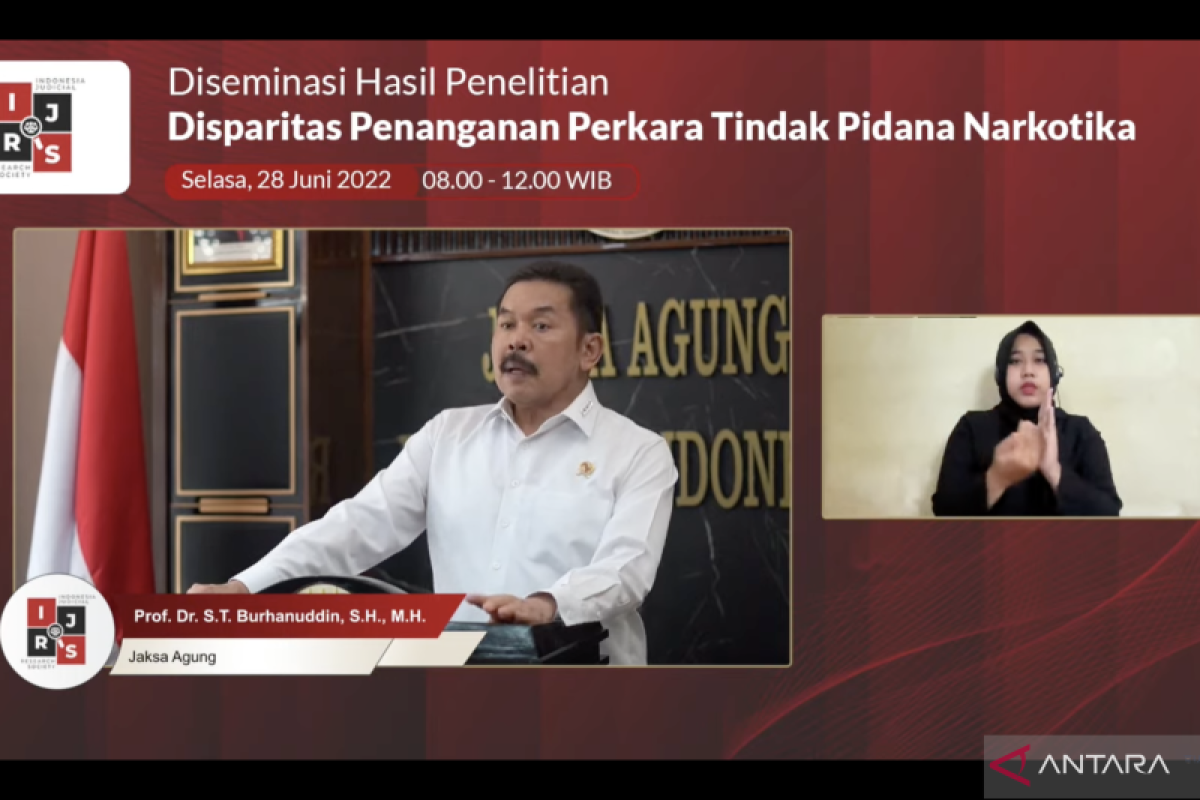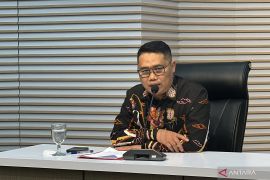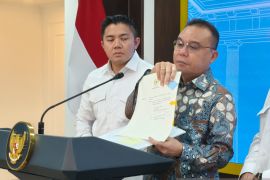"It would be better for drug addicts to receive rehabilitation and not be sentenced to prison," he remarked during the dissemination event titled "Narcotics Crime Case Handling Disparity and Policy in Indonesia" streamed on YouTube on Tuesday.
The purpose of implementing restorative justice in narcotics cases is to restore the condition of drug abusers back to normal, he explained.
In addition, the implementation of restorative justice is based on the principles of quick, simple, and inexpensive prosecution.
"However, in reality, handling drug abuse case is still oriented toward prison sentencing of drug addicts," he remarked.
Prison sentencing causes inconsistency in law implementation.
To this end, prosecutors issued Prosecutor's Guide No. 11 of 2021 on Narcotics Crime Case Handling and/or Narcotics Precursor Crime.
This also serves as an effort to realize the central role of the prosecutor as the case handler.
Related news: 1,143 suspected drug traffickers and abusers arrested in Medan
Also in place is Prosecutor's Guide No. 18 of 2021 on Narcotics Abuse Crime Case Handling Resolution through Rehabilitation with Restorative Justice Approach as Implementation of Prosecutor's Dominus Litis Principle.
Reorientation of policy in handling drug abuse cases became a benchmark for the prosecutors' success, Burhanuddin explained.
"It is not just about how many narcotics cases can be brought to the court, but how a prosecutor is capable of prioritizing restorative justice in handling drug abuse cases," he elaborated.
Through the restorative justice policy, it is expected that drug abusers are no longer sentenced to prison but rather undergo rehabilitation in order to cure them from drug dependency.
Earlier, at a webinar on Monday, Law and Human Rights Ministry's official, Abdul Aris, highlighted that several major correctional facilities in Indonesia experience overcrowding up to over thrice the normal capacity.
Most of the convicts and prisoners were incarcerated due to their involvement in narcotics cases and for general crimes.
Related news: Community-based rehabilitation to fight drugs abuse: Minister Parawansa
Related news: BNN advises rehab for families with drug addicts
Translator: Putu Indah S, Fadhli Ruhman
Editor: Suharto
Copyright © ANTARA 2022












